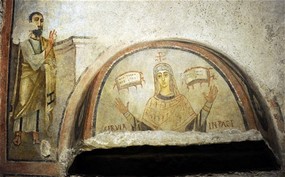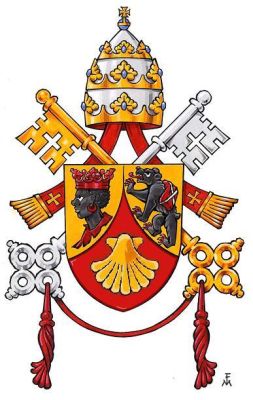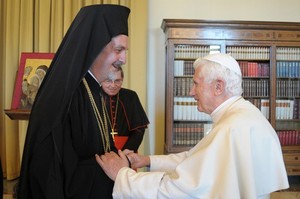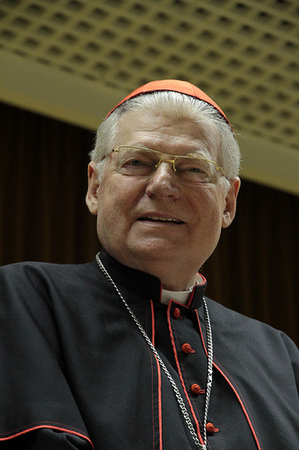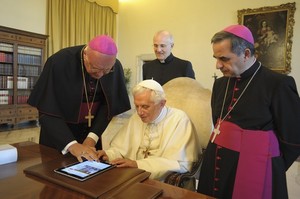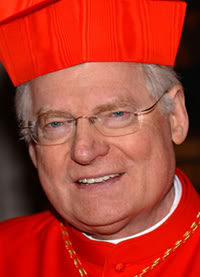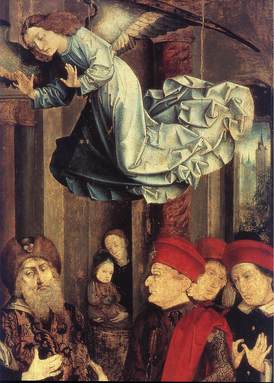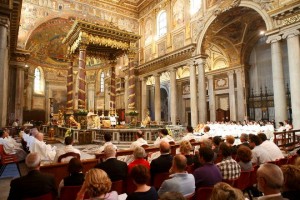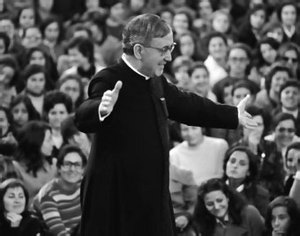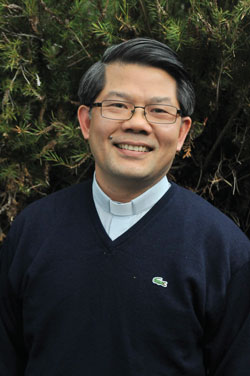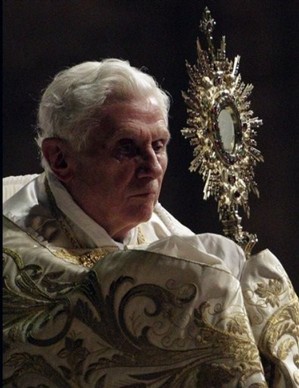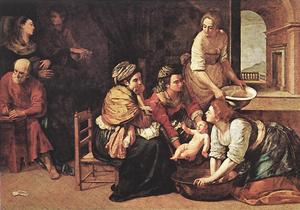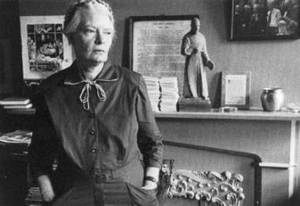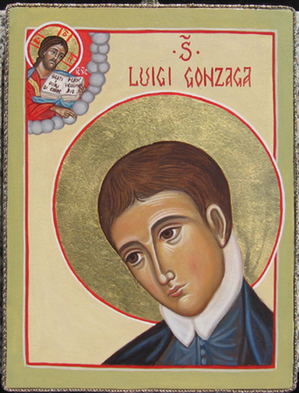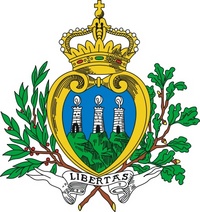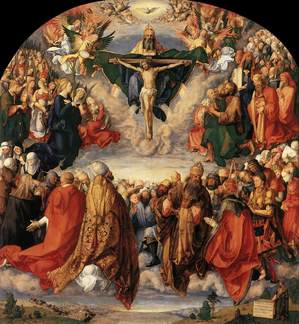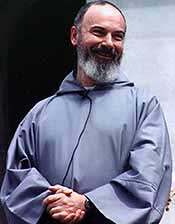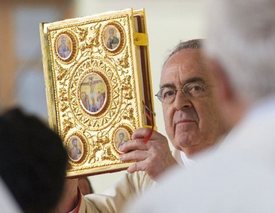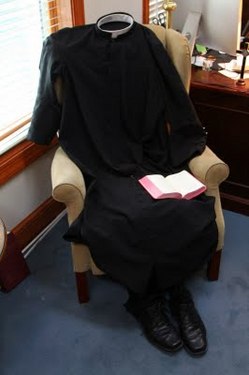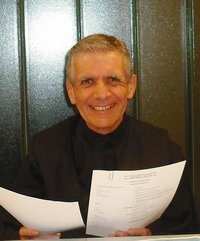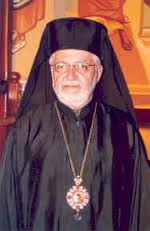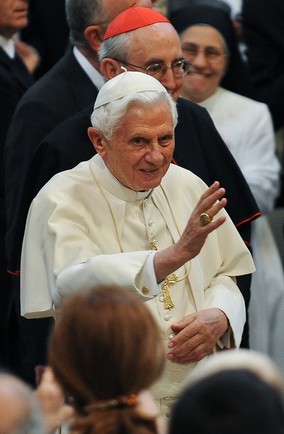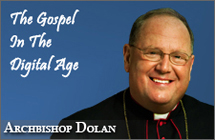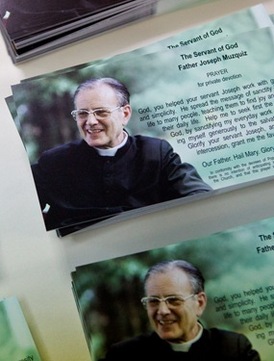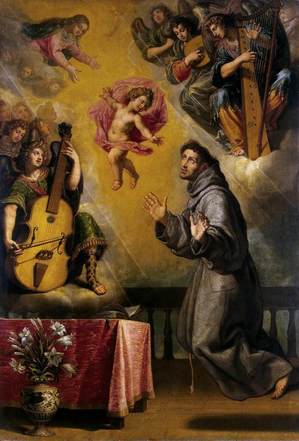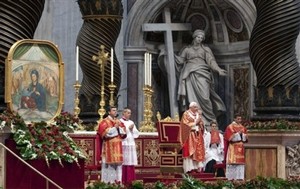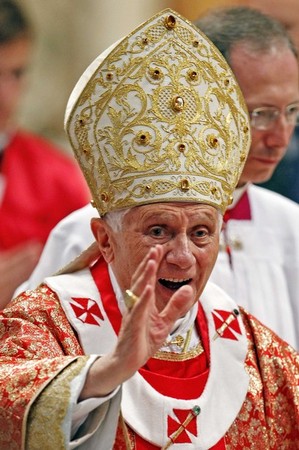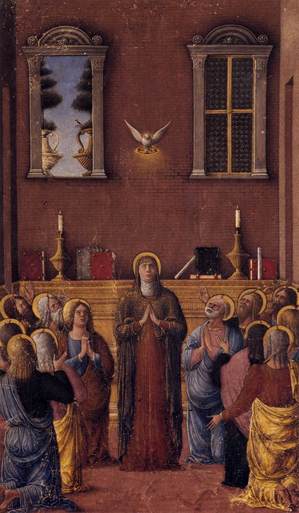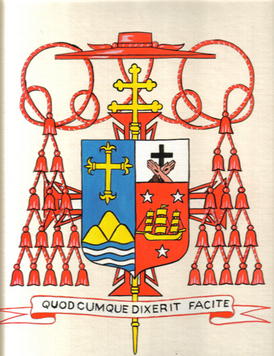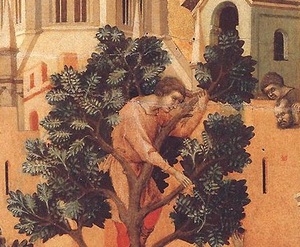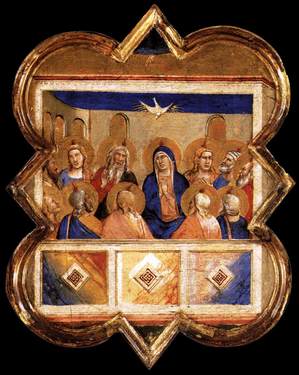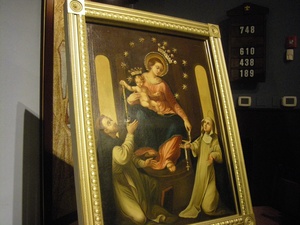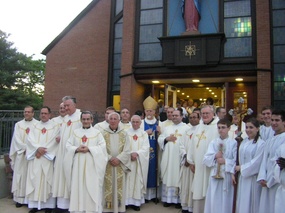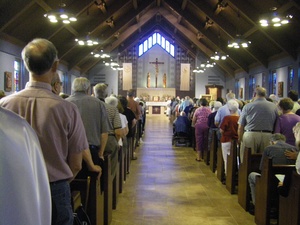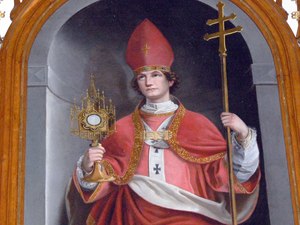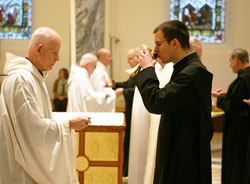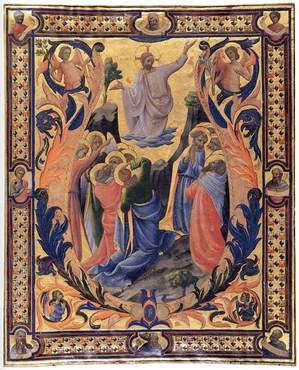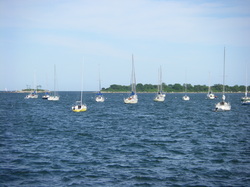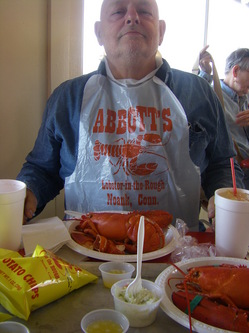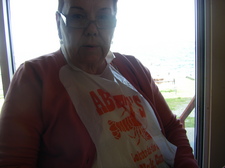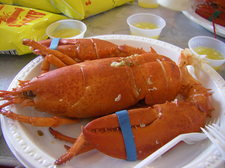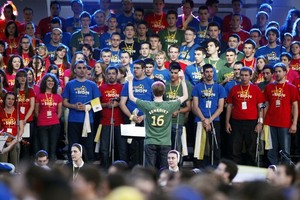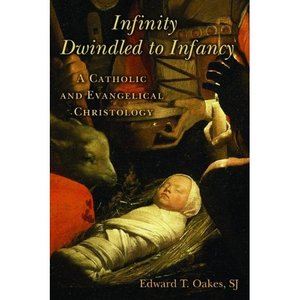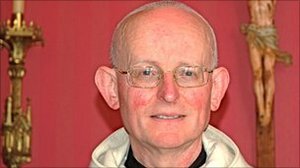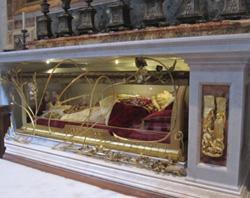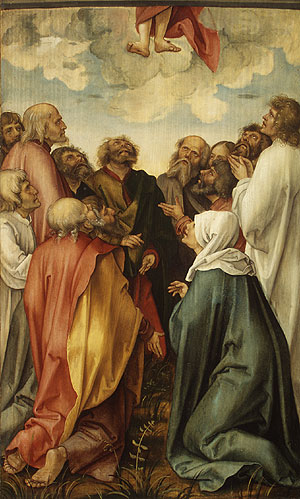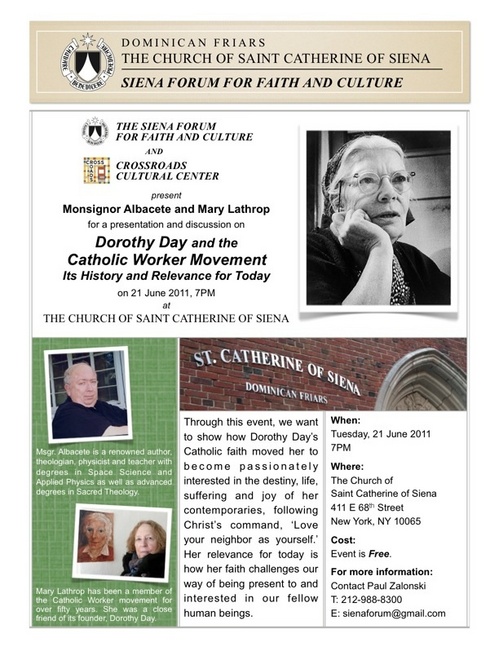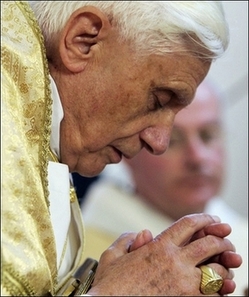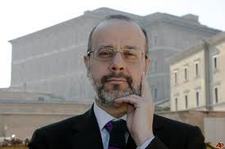
The Pope met with "The Most Distinguished Prof. Giovanni Maria Vian, Editor-in-Chief of L'Osservatore Romano" today observing the paper's 150th anniversary to what is called "A service to truth and to justice." Hearty congrats to Prof. Vian and to his staff for the insight, planning, and good journalism for the world-wide Catholic communion. The paper is often said the "pope's newspaper" and that it's the official newspaper of the pope. In reality L'Osservatore Romano is not that controlled by neither the Pope nor the Secretary of State, though the latter is the supervisor of the paper. Recall that the LOR was not founded by a pope or a member of the Roman Curia; it was a personal initative of the laity with support of the papal government of 1870. As Benedict recalls for us in his address to Vian and staff, the principle of justice based on Christ's promise that evil would not triumph is what oriented the work of LOR. The only official part of the paper is the list of papal appointments. It would be simple to dismiss the paper or to look at LOR as mere parrotting of papal ideology. On the contrary, LOR does excellent work with matters to faith, reason, culture, and politics and related interests Prof. Vian has taken the LOR to a new level. LOR is "a paper of ideas, an organ of formation, not only of information."
The papal address is posted here and the concluding paragraphs are noted below.

"In our day -- frequently marked by the lack of reference points and the removal of God from the horizon of many societies, even of those with an ancient Christian tradition -- the Holy See's daily stands as a "paper of ideas", an organ of formation and not only of information. It must therefore be able to stick faithfully to the task it has carried out in this past century and a half, paying attention in addition to the Christian East, to the irreversible ecumenical commitment of the different Churches and Ecclesial Communities, to the constant quest for friendship and collaboration with Judaism and with the other religions, to discussion and to cultural exchanges, to the voice of women and to bioethical topics that give rise to questions crucial to us all.
By pursuing its open policy towards new signatures, and an increasing number of contributors -- and highlighting the internet dimension and breadth of readership, present since the daily newspaper's very beginning, after 150 years of a history of which it may well be proud, L'Osservatore Romano knows how to express the Holy See's cordial friendship for the humanity of our time, in defence of the human person created in the image and likeness of God and redeemed by Christ.
For all these reasons I wish to address my grateful thoughts to all those have worked on the newspaper of the Holy See from 1861 to this day: to the Director, to the editorial staff and all the personnel. To you, the Editor-in-Chief, and to all who cooperate today in this exciting, demanding and praiseworthy service to truth and justice, as well as to the benefactors and supporters, I assure my constant spiritual closeness and warmly impart a special Apostolic Blessing.
